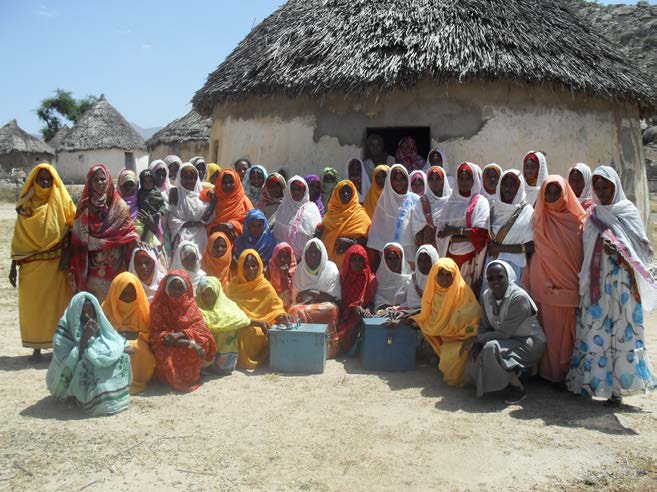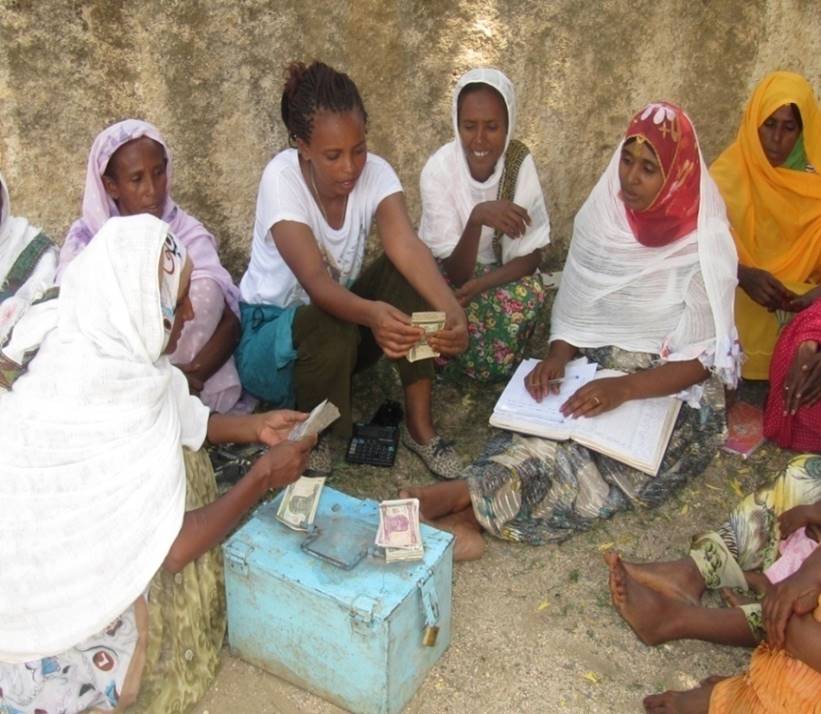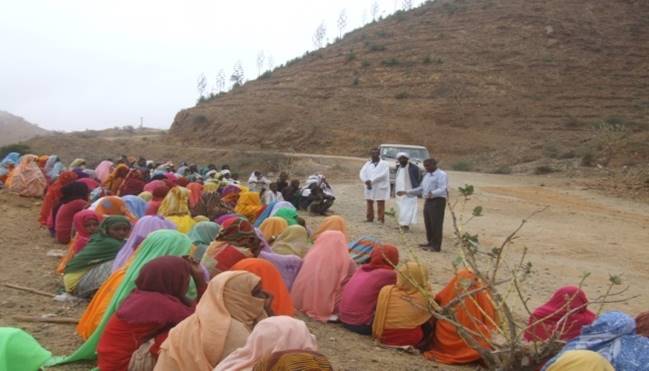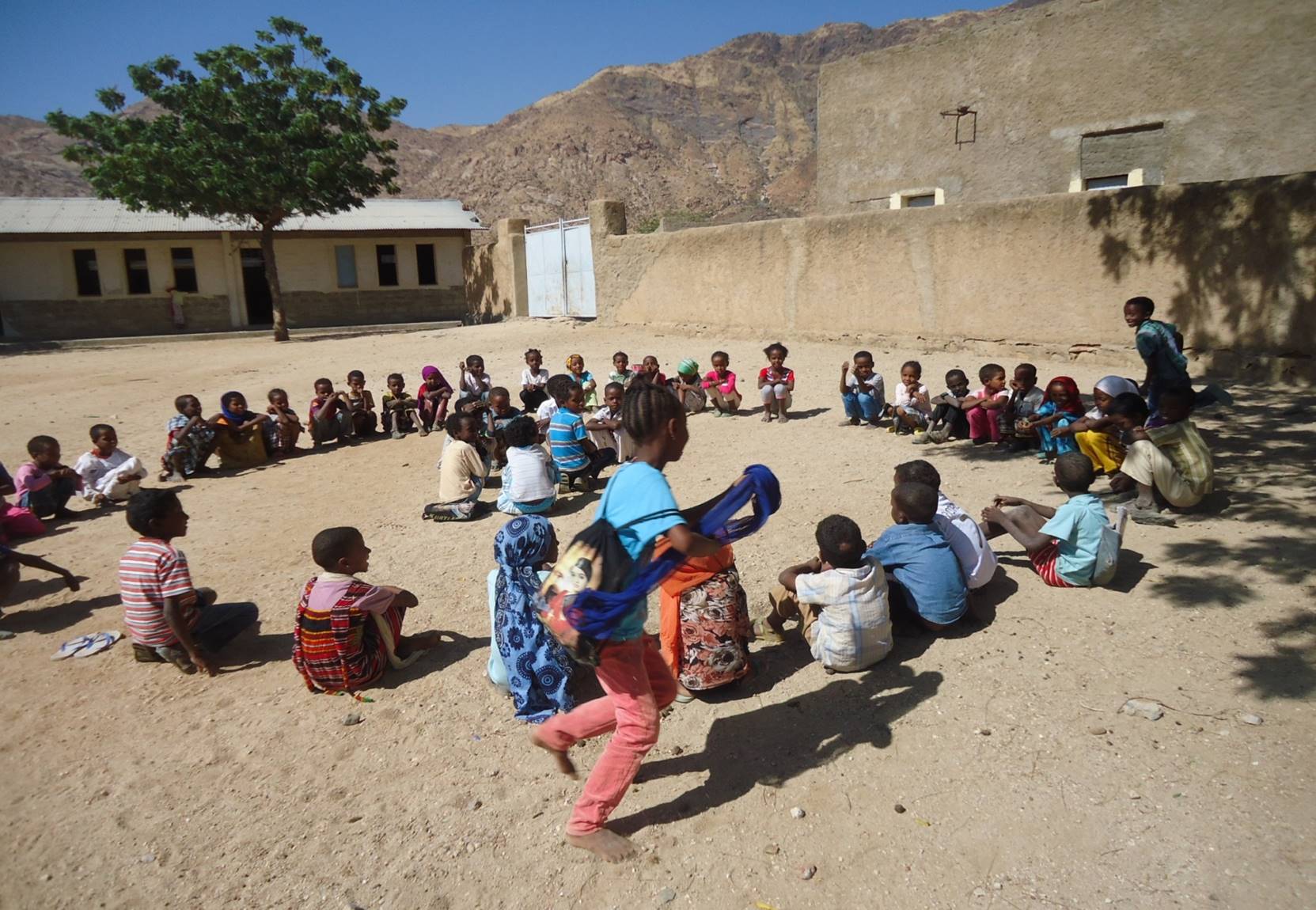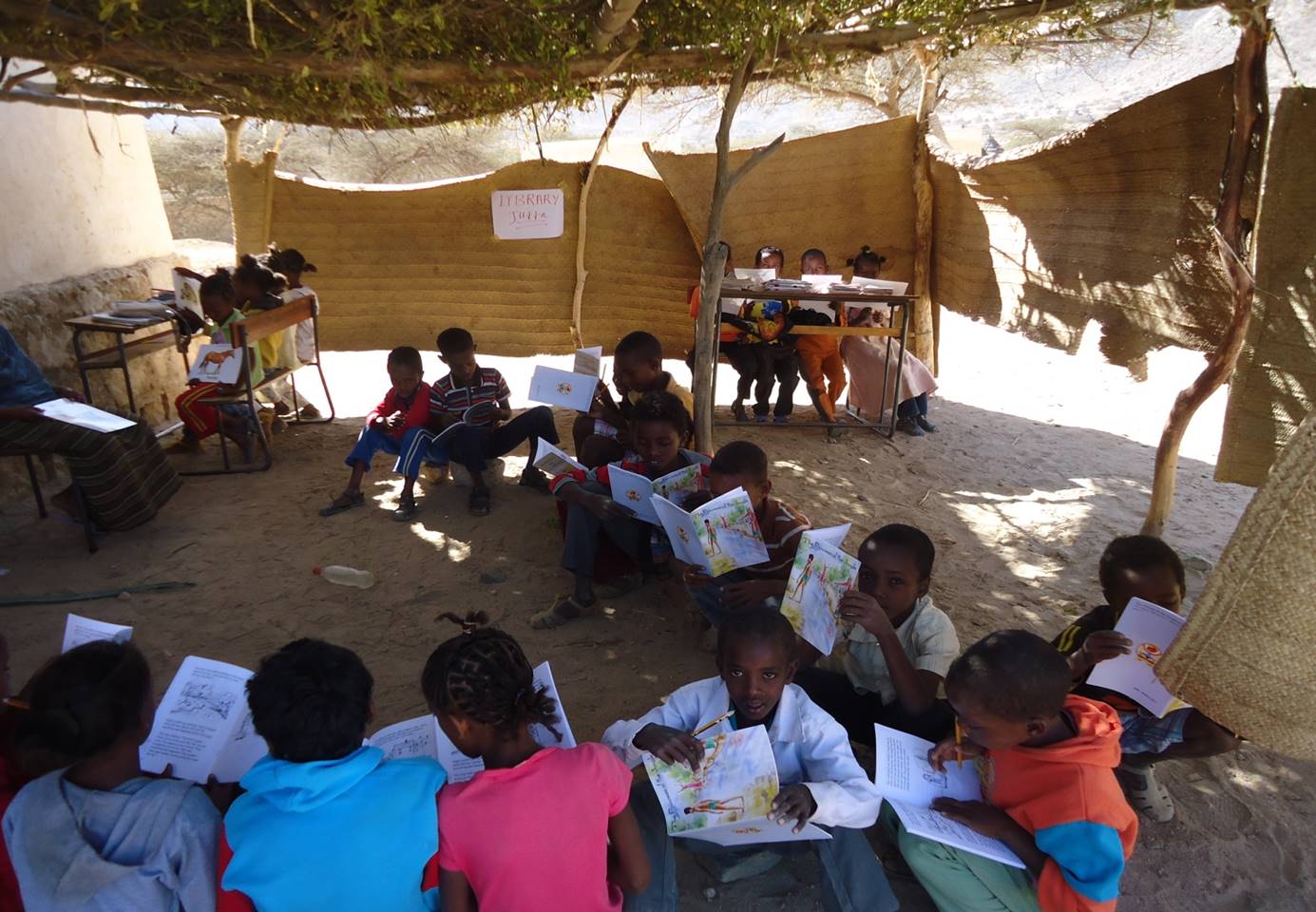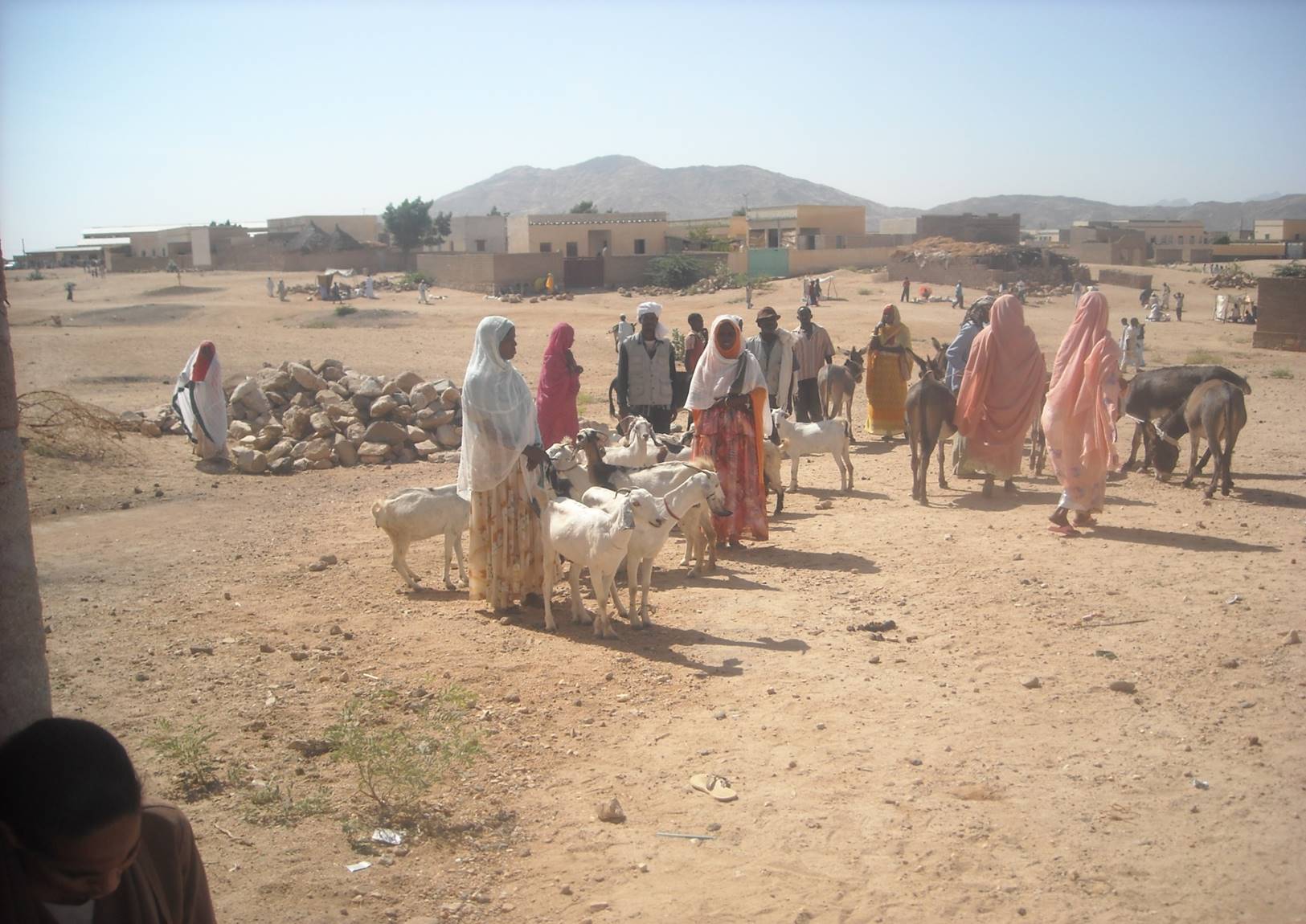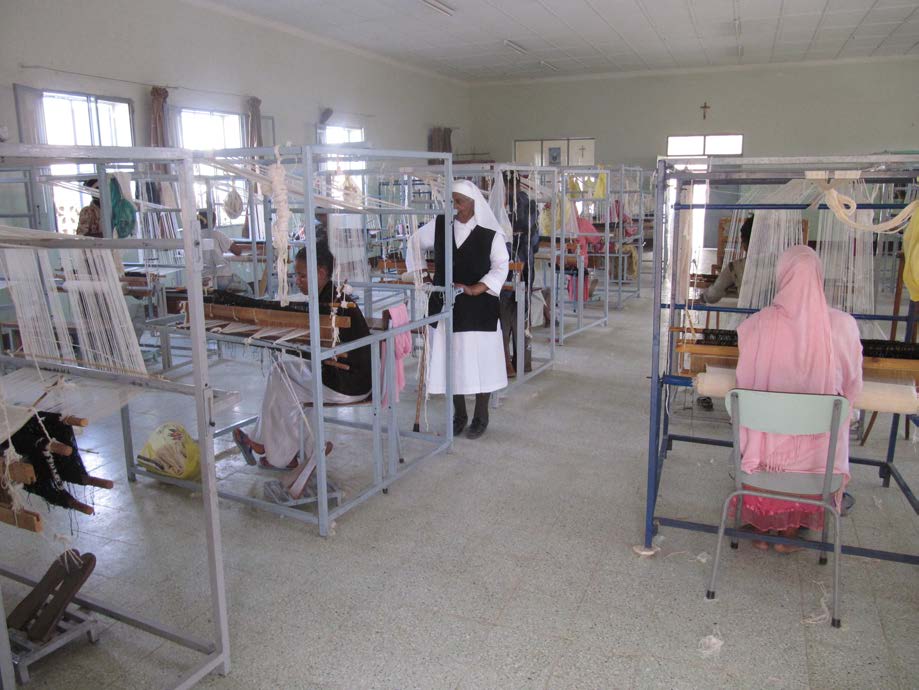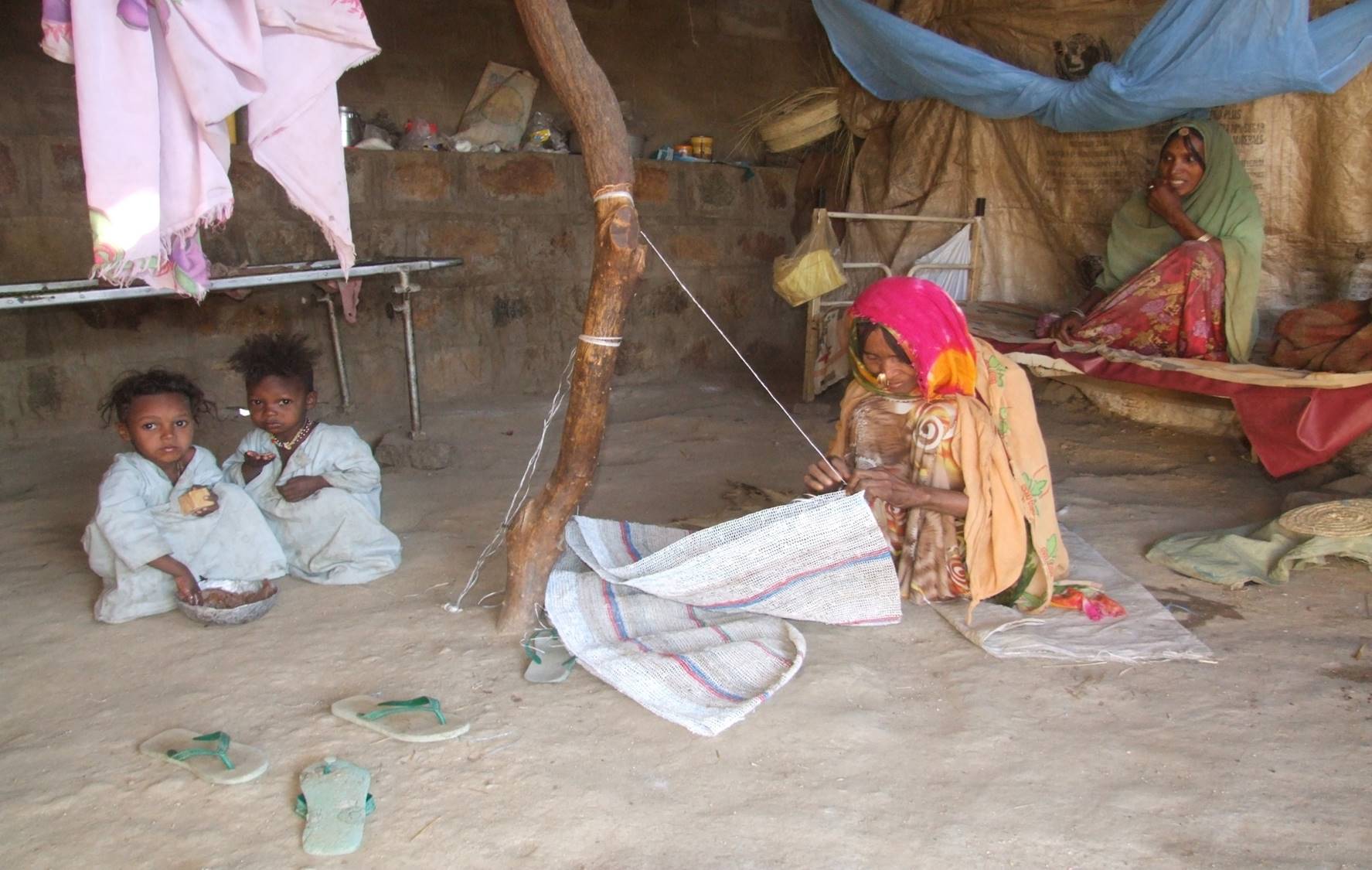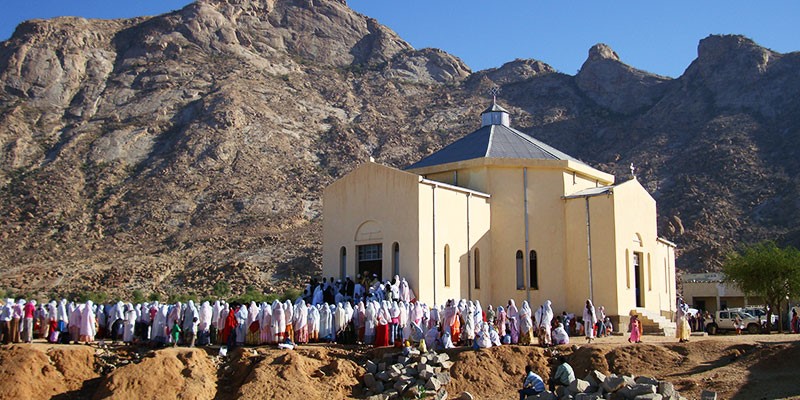
Catholic Eparchial Secretariat Keren (CESKS) – in Eritrea
Women in Development Department of the Catholic Eparchial Secretariat Keren
The Catholic Eparchial Secretariat Keren (CESK) was established in 1996 to coordinate the socio-pastoral services of the Eparchy (Diocese) of Keren to help respond to the emerging needs of the people. CESK has seven program departments: Women Development Department, Health Department, Education Department, Pastoral Department, HIV & AIDS Department, Development & Emergency Department and the Finance Department.
Due to the dictatorship in Eritrea, most NGOs and humanitarian organizations cannot enter the country to offer humanitarian aid. The Catholic Eparchial Secretariat Keren (CESK) is one of the only organizations that help many women, children and men in the area through its Socio-pastoral activities. Due to ongoing wars (Ethiopia and Sudan), droughts and famine many women have lost their husbands and are therefore left as the head of the household, taking care of their children and elderly while also trying to make a living wage.
Caritas Pro Vitae Gradu is supporting two main projects run by the CESK:
“Empower Women for action”
The aim of this Project is to help women improve their standard of living, to emancipate women from socio-economic and cultural barriers and to support them to be self-sufficient contributors in the development of their families and communities. This project has 3 main programs; the Education Program which focuses on health education, the Awareness Raising Program which focuses on work training and the Income Generating Program which offers micro-saving and credit programs to help women start small scale businesses and a revolving fund to give out small loans that are interest free. The way this works is by pooling the resources of 5-30 women in one pot as a savings account and to give micro-credits from this collective savings account to these same women when they are ready to start their own businesses.
“Empower vulnerable women economically, socially and educationally to achieve food security, attain self-sufficiency and transformative capacity.”
The aim of the Project is to empower 255 vulnerable female-headed households with 1300 members to achieve food security and attain financial self-sufficiency. These women attain self-sufficiency through distributing Hairdressing and Barber services in 3 villages, distributing 2’500 chickens to 100 female headed families, providing pottery training, establishing home gardens and centres for culinary training and providing health awareness campaigns. The Comboni sisters offer a hand-weaving program which trains women to weave carpets and dresses they can then sell in local markets. Visit their website: (Comboni).
History
The current population of Eritrea is 3’546’421 people and is ranked 182 out of 189 as one of the poorest countries on the human development index. The country shares its borders with the Sudan, Ethiopia and Djibouti and has an extensive coastline along the Red Sea adjacent to Saudi Arabia and Yemen. 80% of the population is involved in farming and herding, however there are many threats to agriculture, such as frequent droughts, desertification, soil erosion and overgrazing. Therefore, the country is only able to adequately cater for 60% of the country’s food demands. Eritrea suffers from a high level of poverty with high unemployment rates and limited access to income generating activities. Keren is the capital of the Anseba region, of which 85% of the total area is known as one of the hottest and driest places in Africa. The most challenging problem of this region is famine and drought. The agricultural production of this region covers only 21% of the total food demand.
Since 1996 the Diocese of Keren has organized multiple projects every year to help the most vulnerable people in their community through training, education and micro-credit support. Aside from these support programs, they also hold mass and offer spiritual guidance to all the people of Keren to ensure that the local people stay positive and motivated throughout the difficult situations they have been going through.

